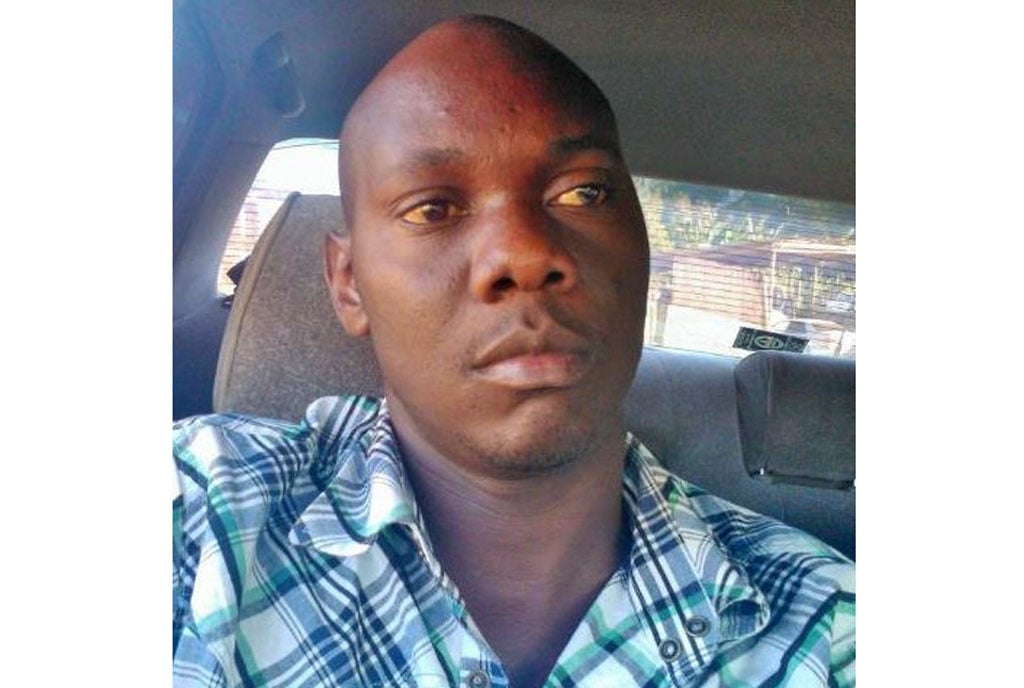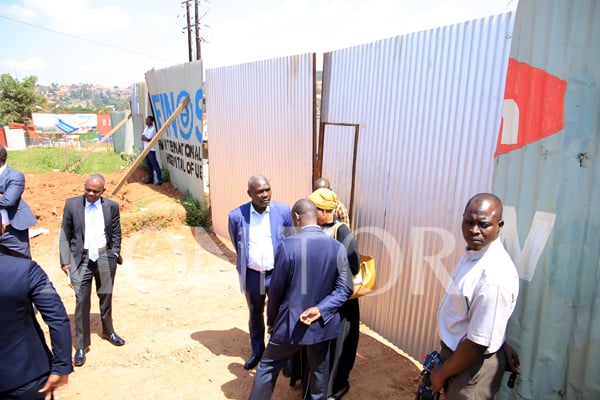Prime
Inside multibillion coffee deal govt signed with UVCC

Finance minister Matia Kasaija (2nd left) exchanges documents with Ms Enrica Pinetti (right) after signing an agreement with the Finance ministry to establish a coffee processing plant in Uganda, on February 10. PHOTO / FILE
What you need to know:
- Finance minister Matia Kasaija signed on behalf of government, while Ms Enrica Pinetti signed on behalf of Uganda Vinci Coffee Company Limited (UVCC).
Details of how the government surrendered the entire country’s coffee business to a controversial Italian investor have emerged following a leaked February 10 legal document signed by both parties.
Finance minister Matia Kasaija signed on behalf of government, while Ms Enrica Pinetti signed on behalf of Uganda Vinci Coffee Company Limited (UVCC).
Mr Ramadhan Ggoobi, the Permanent Secretary in the Ministry of Finance, also the secretary to the Treasury, and UVCC’s company secretary Moses Matovu, witnessed the signing.
UVCC is registered and located on Plot 2, Summit View in Kololo, Kampala. The company was given free land in the Industrial and Business Park at Namanve after it indicated its capability of establishing a coffee processing facility in Kampala.
However, in what appears to be misrepresentation or fraudulent action and negligent misstatement in the legal document, UVCC is given exclusive rights to buy all Uganda’s coffee even before the government can look at other players.
UVCC’s concession will end in 2032, but it is subject to renewal. The total investment value is not stipulated as per the leaked legal document.
During the period, the government pledges support in the form of non-precedent concessions that in essence mean the investor will not be eligible to pay any form of tax from project commencement.
“[UVCC] shall be entitled to all tax exemptions available under the laws of Uganda. [These] shall extend to taxes and impositions applicable to all the activities of the company and its foreign staff in respect to the export of green coffee beans,” a clause in the agreement states.
Another clause makes clear the fact that the government further commits the Ugandan taxpayers. The said clause indicates that “where no exemption from tax is allowed under the law of Uganda or exemption provided is inadequate to provide the company with comprehensive relief from taxes or other impositions, then the government undertakes that it will bear the cost of all taxes.”
UVCC will enjoy exemption in regard to Import Duties, Value Added Tax, Excise Duty, Stamp Duty, Corporate Income Tax and employment-related taxes, as well as any other tax or imposition levied or charged under the laws or any other laws that may be enacted.
Article 4.1.4 of the deed says: “If there is any change in law or change in tax which substantially alters the economic benefits accruing, the company may within one year from commencement of the deed (February 10) write to government in order to maintain the economic benefits of UVCC.”
It adds: “Upon receipt of the notification, government shall take immediate steps to restore the company to economic position it should have been in but for the change of law.”
Another potential sticking point is a clause (section 4.2.1) that commits the government to ensure reasonable measures to give priority of supply of coffee to the company before registering any contract or acknowledging any arrangements for export of coffee beans. This is so that UVCC will have ample supply of coffee to sustain its operations.
Section 4.3 of the agreement says the government will protect existing coffee processors in line with existing local and international agreements.
The agreement has been labelled “fraudulent” by constitutional lawyer and Mawokota lawmaker Yusuf Nsibambi.
“The agreement formalises fraud by government. How would you create a monopoly—allow one player to determine prices in a free market economy? How come this doesn’t apply in other sectors?” Nsibambi wonders.
Mr Stephen Lwetutte, a human rights practitioner, says the initial agreement was signed seven years ago and there is little evidence that shows progress.
“The real reason why the project has been resurrected is probably because the government is monopolising the coffee business through the backdoor. It is noteworthy that the agreement coincides with Uganda’s withdrawal from the international organisation of coffee exporters where Uganda was among the top members,” Mr Lwetutte said.
ALSO READ: UCDA position on coffee pact misguided
He added: “Also, the agreement specifically alludes to prioritising supply of coffee to the company before any exports or sales elsewhere can be allowed, notwithstanding the fact that UVCC is a private company like any other. The fact that it enjoys certain legal privileges and exemptions are neither here nor there. This project smacks of similar well-connected ventures like Good Will Tiles and Lubowa hospital… It is a personal investment disguised as a legitimate private investment taking advantage of State concessions.”
Building economy
The concessions—according to agreement—with the company in respect to the project, are aimed at implementing the project in an “efficient manner.”
UVCC has already been given a huge chunk of land by the Uganda Investment Authority (UIA) within Namanve Investment Park.
A 49-year lease agreement has also been signed with UVCC. The agreement, however, gives the company carte blanche to “use the land for all purposes it deems fit in relation to the project.”
Another provision in the agreement (section 3.1) empowers UVCC to roast coffee beans, manufacture coffee capsules, as well as grind and make instant spray coffee. All this production combined, is estimated to total 60,000 tonnes of processed coffee.
It is thought the company will create 246 jobs of skilled and unskilled labourers.
Also, in the event that UVCC chooses to sell its interests, the government will be notified and given first priority.
Mr Ggoobi, who witnessed the signing of the agreement, offered no response when contacted.
But it is safe to say coffee farmers are in a state of shock.
“This deed hands over Uganda’s coffee to a single buyer, and denies farmers the benefits of perfect competition among buyers,” Mr Moses Kasibante, a coffee farmer and former MP, who represented Rubaga North in the 10th Parliament, said.
UVCC was incorporated in January 9, 2014.
On July 13, 2014, President Museveni met its owner, Enrica Pinetti.
Ms Pinetti is the woman behind the controversial Lubowa National Specialised Hospital.
A recipient of a trillion shillings loan courtesy of a government guarantee, the project continues to run with no tangible results.
Ms Pinetti—who was in 2019 given the green light to erect a children’s hospital in Entebbe—has previously been accused of doing shoddy work in Libya and Chad.
Efforts to get a comment from Ms Pinetti or her legal representatives were futile by press time.
NEW COFFEE LAW
In coffee growing circles, there is a fierce debate on the National Coffee Bill, 2018.
The National Coffee Bill was passed by Parliament in August 2020.
It seeks to provide for the registration of coffee farmers by the Uganda Coffee Development Authority (UCDA).
The registration of farmers was to entail capturing details of the size of land, number of coffee trees, particulars of a farmer, coffee buyers, sellers and nursery bed operators.
Buganda Kingdom, among other power centres, opposed some contents of the Bill, arguing that they would affect the thriving sector, which is recovering from decades of ruin.
Last year, President Museveni declined to assent to the Bill, asking Parliament to review several provisions in the proposed law.
DON'T MISS: Empower local investors to have say in economy
Mr Museveni wants the House to review clause 14 of the Bill regarding the appointment of the Board of UCDA, the appointment of the board chairperson, and director of the authority.
He also wants Parliament to review Clause 26 on the registration of coffee farmers and the issuance of a certificate of registration for coffee nursery operators.





